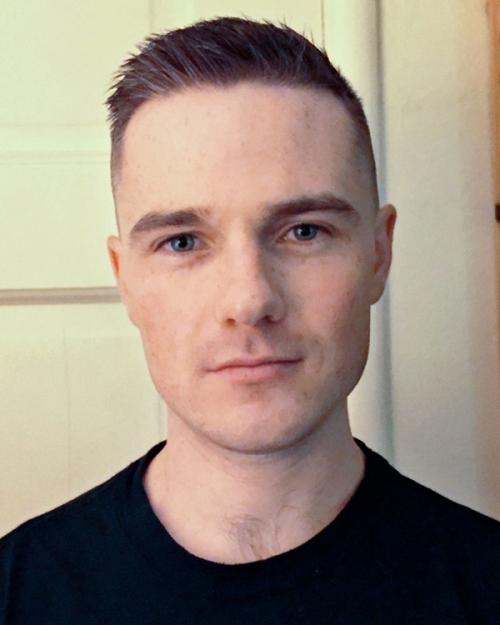In mathematics, axioms are statements that don’t need to be proved; they are truths one can assume, such as the axioms “for any number x, x + 0 = x” or “Between any two points is a line.”
Working in the field of logic, James Walsh, a Klarman Postdoctoral Fellow in philosophy, studies the axiomatic method, a central methodology in mathematics whereby claims are proven from axioms.
Based in the Sage School of Philosophy in the College of Arts and Sciences, Walsh is tapping into Cornell’s robust logic resources in philosophy, mathematics and linguistics to accomplish three years of study under the Klarman Postdoctoral Fellowship, working closely with Alexander (Arc) Kocurek, assistant professor of philosophy.
Walsh is trying to get to the heart of a discrepancy between the natural theories, which arise in mathematical practice, and unnatural ones that do not.
“One of the things we do in logic is measure and compare the strengths of theories,” Walsh said. “When we look at all axiomatic theories—including both the natural and unnatural ones—and we compare them according to their strength, the result is very messy. We get lots of pathology. It turns out that it’s not generally possible to compare the strength of axiomatic theories.”
However, if the focus is shifted to just the natural theories, which are the ones that arise in practice, those pathologies disappear, Walsh said. “Any two natural theories can be compared according to their strength, and it’s possible to rank the natural theories,” he said. “That contrast – between the axiomatic theories in general and the natural theories – is mysterious.”
Walsh stands out for his ability to bridge the divide between mathematics and philosophy, Kocurek said. “Often, researchers in logic are either really just mathematicians or really just philosophers. But James is really both: He publishes serious mathematical work while also being able to isolate the philosophically important aspects of that work.”
Logic is fundamentally interdisciplinary, Walsh said. At Cornell, he has been participating in a seminar in mathematics and a joint research group between linguistics and philosophy including faculty members and graduate students. He said that scholars from different disciplines can talk with him about different facets of his central project.
Walsh first heard of the mysterious discrepancy between natural theories and unnatural theories in a philosophy seminar during a year between his undergraduate and graduate studies spent as a visiting student at Harvard.
“What was interesting to me is that people evoke this observation that the natural theories have this nice structure in the course of certain philosophical arguments,” Walsh said. “I wondered: How do we know this is true and that there isn’t some undiscovered counterexample? Has anyone proved a theorem that indicates that the claim is true?”
Walsh said it is widely claimed that the problem cannot be approached mathematically since “naturalness” is not a precise notion.
The research community at the University of California, Berkeley, where he completed his Ph.D., encouraged Walsh to continue thinking about the contrast between natural and unnatural theories. The Klarman Fellowship, Walsh said, allows him to focus on research he had just begun in his doctoral studies.
“He’s tackling deep and important issues at the philosophical foundations of linguistics and philosophy of language,” Kocurek said. “He’s also incredibly productive. James’ philosophical work makes real progress on longstanding philosophical problems.”
This month, Walsh received the 2020 Sacks Prize from the Association for Symbolic Logic, recognizing his thesis, “Reflection Principles and Ordinal Analysis,” in which he’s made progress towards explaining “why proof-theoretic results tend to be robust with respect to the kinds of theories that occur naturally in mathematics.”
Logic appeals to Walsh because the field combines the precision and methods of math with the interests of philosophy. “You prove things that say something important about the scope of what we can know and what we can prove,” he said. “But you do so with mathematical techniques and a lot of precision.”




